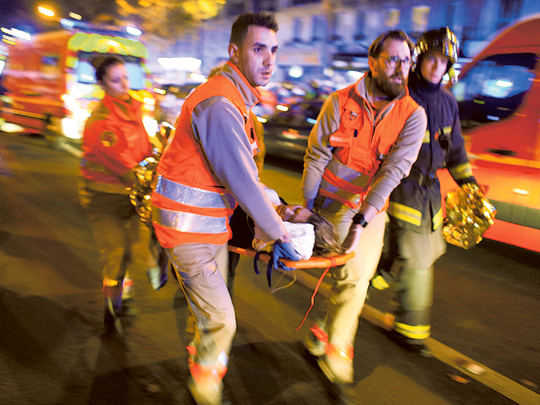
Madrid: Since he turned 18, Abd Alaayoun has been working with SOS Racisme, a Paris-based movement that highlights anti-Muslim bias and Islamophobia in French society. And his own experiences — failing to get meaningful work, being ignored in queues, being treated as a second-class citizen because his grandparents moved to the French capital from the south of Morocco — leave him in no doubt why Arab youth become radicalised.
“The environment in any banlieue is oppressive,” Alaayoun explains, using the French slang for an overcrowded suburb where high-rises, dense concentrations of ethnic communities and high crime rate prevail. “If an employer sees Paris 93 or 95 on a CV, it ends up in the [expletive] pile,” the 22-year-old explains in a WhatsApp exchange with Gulf News. The numbers refer to French departments or districts used by local government and the postal service.
So what are Alaayoun’s own experiences?
As soon as he tries to enter a nightclub or a popular entertainment venue, he’s refused entry while others are let in.
Only menial jobs are offered even though he has a baccalaureate and has a higher education certificate in computer studies.
Any work he has been offered is at smic — French slang for minimum wage.
And he is constantly stopped by “les flics” — French special police — and asked for his identity card.
In the French presidential election, he supported Benoit Hamon, the Socialist Party’s candidate who came sixth in the first round of voting.
“Le Pen and her [National Front expletives] are hatemongers who spew anti-Muslim [expletive],” he texted.
Alaayoun says that Arabs and blacks are regularly targeted by police, a policy he says is overtly racist. “They do it because we are Muslim,” he wrote. “We are [expletives] and they can do what they want.”
Alaayoun’s experiences aren’t unique, and social unrest and rioting have broken out in several lower-class crowded suburbs against police actions and assaults on young Muslim or migrant men. He says he reads the Quran and attends his local mosque regularly.
His faith offers him peace and tranquillity for now, but he understands why some Arab youth have become radicalised. For Alaayoun, it’s a fact of life in the banlieue.
Wave of attacks
In November 2015, a wave of attacks across Paris killed 129 people in what President Francois Hollande called an “act of war” by Daesh.
Hollande declared a state of emergency, ordering police and troops into the streets, and set three days of official mourning as a stunned nation sought to comprehend the simultaneous assault on restaurants, a concert hall and the national soccer stadium on a busy Friday evening.
Prosecutors said the slaughter — claimed by Daesh as revenge for French military action in Syria and Iraq — involved a multinational team with links to the Middle East, Belgium and possibly Germany as well as home-grown French roots.
In the worst carnage, three gunmen systematically killed at least 89 people at a rock concert by an American band at the Bataclan theatre before detonating explosive belts as anti-terrorist commandos launched an assault, officials said.
Some 40 more people were killed in five other attacks in the Paris region, including a double suicide bombing outside the Stade de France stadium, where Hollande and the German foreign minister were watching a football match.
— With inputs from Reuters












